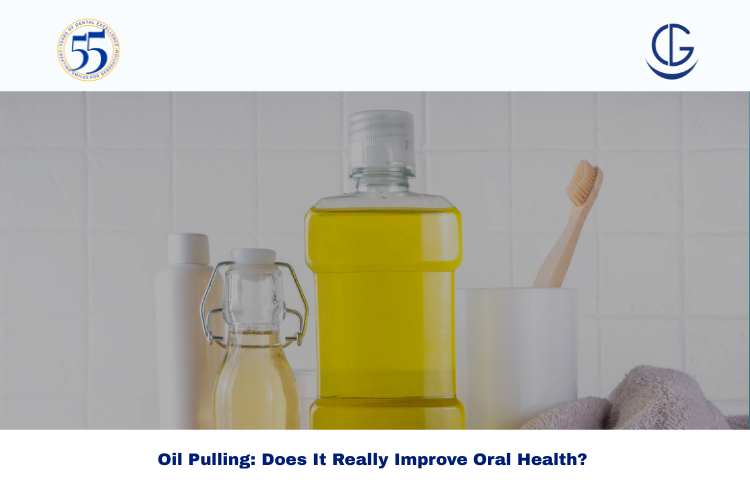Schedule Appointment



Oil pulling is an old Ayurvedic practice for oral care, and now it is growing in popularity again for its natural approach to oral hygiene. Many people are now starting to try oil pulling as an easy and affordable home remedy for improving their oral health. But, does it really work? And more importantly, is it safe?
Oil pulling is the act of swishing oil (usually coconut, sesame, or sunflower oil) in your mouth for approximately 15-20 minutes. For many centuries, this traditional Ayurvedic practice has purportedly “pulled” toxins and bacteria from your mouth and therefore created a cleaner and healthier oral environment.
Research shows that pulling with oil is great at reducing harmful bacteria in the mouth like Streptococcus mutans, the bacteria that causes plaque and cavities.
For those suffering with gingivitis, oil pulling can help reduce inflammation and bleeding associated with the condition. Each oil (like coconut and sesame) has antimicrobial properties that can help also soothe tissues.
Many people report whiter teeth with consistent pulling with oil for 1-2 weeks. This effect is likely due to the removal of surface stains.
Bad breath, also known as halitosis, is usually the result of bad bacteria, swishing oil in your mouth is a method of removing those bad bacteria and leads to fresher breath.
Swishing oil can be used as an adjunct to tooth brushing and flossing and improve hygiene practices daily, without chemicals or harsh cleansers.
While oilpulling is generally safe, there are a few things to keep in mind:
Oil pulling is a helpful supplement, but not a cure for serious dental conditions. You should see a dentist if you have:
Dr. Gowds Dental Hospital offers expert dental services and personalized consultations to determine if oil pulling is right for you.
If pulling with oil doesn’t suit you, there are other natural remedies to support your oral health:
Oil pulling can be a helpful adjunct to your oral health care regimen. In addition to removing destructive bacteria, it may help improve gum health, make your breath fresh, and may even whiten your teeth! Of course, it isn’t a replacement for seeing a licensed dentist or for reacquainting yourself with your toothbrush and floss.
If this is your first time doing oil pulling, my advice is to take your time and see how your body reacts. And please, speak to a professional when in doubt, or if you currently experience dental problems. For those in Hyderabad, Dr. Gowds Dental Hospital offers knowledgeable, honest, and reliable advice.
Yes, oil pulling is proven to reduce bacteria, improve gum health, and freshen breath. It is likely most effective when accompanied by brushing and flossing.
Yes. Daily oil pulling especially in the morning before brushing is proven to be the most beneficial. Just don’t forget to do your regular oral hygiene!
Coconut oil is the most popular oil for pulling because of its antibacterial properties and pleasant taste. Sesame and sunflower oil are also effective.
Oil pulling is safe but may cause minor jaw fatigue or minor nausea if carried out for too long. You must always spit out the oil and not swallow.